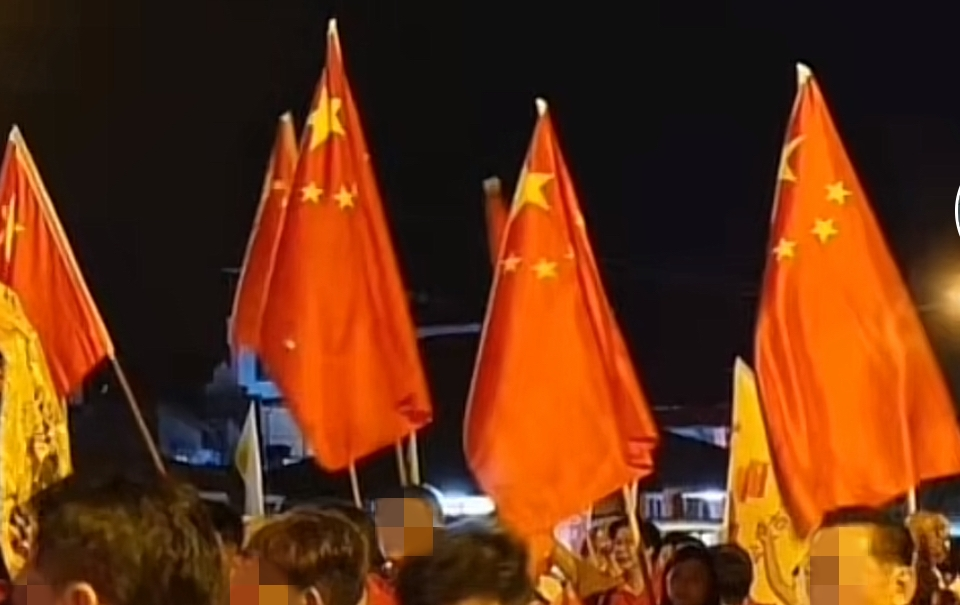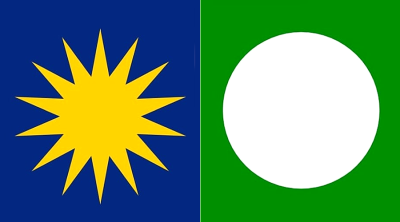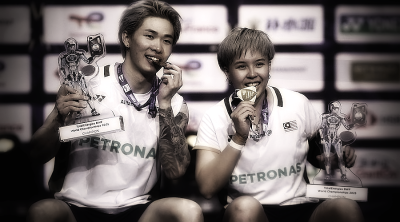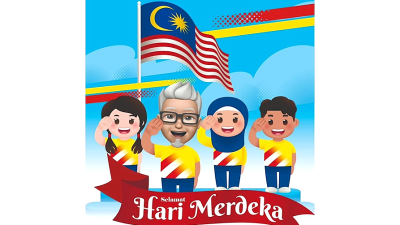Malaysia is a blessed country, where different ethnic groups showcase their wisdom and strength to the world. This harmony should not be disrupted by hate speech, nor should we be blinded by fragmented information.

Whether it’s the event held at the Leaning Tower in Teluk Intan or the waving of five-star red flag of China by Chung Ling Independent High School students in Penang, these have been deliberately sensationalised by the right wing Malays.
They use a few photos and video snippets, which do not reflect the full picture, to create a false impression that local Chinese are disloyal to the nation. They are also attempting to incite fear within the Malay community towards China and the communist party in China.
This is not an isolated incident; it will continue to occur in the future, as irresponsible politicians need to constantly stir up issues to provoke public emotions and secure support from their communities.
These two worrying incidents remind me a scene at the Tiananmen Square in China on 1 October 2019.
I was with many Malaysian Chinese community leaders bestowed with the title of Tan Sri, invited to attend the 70th-anniversary celebration of the People’s Republic of China.
Each of us received a bag containing a bottle of water and a five-star red flag at platform.
One Tan Sri and I looked at the flag and remarked, “If we wave this, it could spell trouble.”
Wherever we are, we constantly remember that Malaysia is our home; this patriotic sentiment does not need to be judged by leaders of Umno Youth or PAS.
After the flag incidents in Teluk Intan and Penang, I was amazed to see some people come forward to apologise.
Foreigners were waving the Chinese flags, and we, as Malaysians, had not waved a foreign flag, so why apologise?
We must not let politicians, who have long manipulated their communities with a “victim mentality,” smear the Chinese community as “unpatriotic”, creating a victim mindset among the Malays that as the owner of this land, they have granted the Chinese citizenship, allowed Chinese names and Chinese education but “betrayed” by the Chinese in return.
These politicians have used the approach to control community sentiments over generations. Now, they are trying to instil fear of China among the community and link Chinese nationals with local Chinese, which we should be cautious of.
Meanwhile, after years of struggle, Chinese and Indian communities have also developed a similar sense of victimisation that they have been treated unfairly.
Manipulated by the politicians, the grassroots of various ethnic groups are emotionally vulnerable. The spread of fake information in internet can easily reach a stage of beyond control.
Not long ago, the George Town Festival in Penang released a promotional video featuring performances of Indian drums, Chinese Teochew opera, and modern Malay dance. However, the video was sensationalised as lacking Malay elements and the programmes were too Chinese-centric.
While it is not clear whether the organisers explained the situation immediately, the promotional videos were removed from social media immediately under pressure and an apology was issued, as if a mistake had been made.
The Chinese Malaysians were puzzled, as Malay performances were indeed included as part of the programme, yet the organiser was blamed while the accuser appeared as victims.
Unfortunately, many who stir up issues do so not to solve problems but to be the hero. Often, those criticised simply compromise to avoid further entanglement, missing the chance to bring all parties together for a meaningful dialogue and solve the problem.
We continue to live with the mindset of being a victim, encounter endless biased accusations and engage in insignificant disputes.
Out of concern for the lack of initiatives bridging ethnic divides, I proposed to establish a cross-media alliance in 2022, inviting editors from English daily The Star, Malay tabloid Sinar Harian, and Astro Awani to collaborate periodically on topics that encourage racial harmony.
Later, the Tamil newspaper Malaysia Nanban also joined us.
On the other hand, the Chinese flag incidents in Teluk Intan and Penang should serve as a reminder to Chinese nationals in Malaysia to be more sensitive to the local sentiment, so that their actions or words are not misinterpreted or used by certain politicians to attack local Chinese Malaysians.
In recent years, Chinese nationals have become more visible in towns and cities in Malaysia, with huge Chinese-language signs all over the places. Recently, local authorities started to crack down on illegal signages. I have long advised Chinese friends that signages with Chinese text larger than Malay text are against the law. Local Chinese Malaysians fought long ago for the right to display Chinese-language signs, ultimately reaching a compromise that Malay text must be larger than Chinese text. Therefore, all Chinese nationals operating businesses in Malaysia should understand this history.
Additionally, since not all Malays are able to differentiate Chinese nationals and local Chinese Malaysians, certain politicians exploit this to create a sense of crisis within the community.
As newcomers, Chinese nationals should understand the history of ethnic relations in Malaysia and not take what they see for granted.
Prime Minister Datuk Seri Anwar Ibrahim, as the head of the unity government, has stated that he will not tolerate the growth of racism and clarified that he is not “pro-China” just because of these flag incidents.
Nonetheless, his political opponents continue to imply that local Chinese Malaysians are unpatriotic and portray the Democratic Action Party (DAP), which has significant support from Chinese Malaysians, as the instigator of these issues.
In the past, the DAP accused the Malaysian Chinese Association (MCA) of failing to have authority despite the fact that MCA was part of the ruling coalition , which fueled dissatisfaction among local Chinese Malaysians. Now, as the DAP holds power, it is under similar pressure.
The unity government is a temporary coalition formed out of necessity based on each party’s interest, and in the next general election, an inevitable standoff between Umno-led Barisan Nasional and Pakatan Harapan will emerge.
The attacks on issues related to the Chinese community by Umno Youth aim to accumulate leverage for future elections.
Anwar’s silence on the words and actions of Umno Youth leaders is a strategic move to maintain stability, avoid direct conflict with Umno, and keep the unity government intact.
During the heated Chinese flag incident, I was taking a break in China and visited the Chengdu Museum. I saw Chinese parents bringing their children to learn about history.
The conversation between a mother and son discussing a photo of Japanese bombings in Chengdu left a lasting impression on me.
A boy, about six years old, asked his mother, “Why did Japanese soldiers kill Chinese people?”
The mother answered, “We only have one earth, and people must live in peace. People are happy only if the world is peaceful.”
Reflecting on this, I can’t help but think about the Russia-Ukraine war, the conflict between Israel and Palestine, and how Malaysia, made up of multi-racial communities, cannot afford racial or religious conflicts.
Malaysia is a blessed country, where different ethnic groups showcase their wisdom and strength to the world. This harmony should not be disrupted by hate speech, nor should we be blinded by fragmented information.
In this era of new media where human emotions are easily provoked, we need more people to step up and work towards unity, rather than letting dark forces triumph over light.
Media is indeed the source of this unifying power—are we aware of our own value?
(Kuik Cheng Kang is Group Editor-in-Chief (Malaysia) at Media Chinese International Limited (MCIL) cum Sin Chew Daily Editor-in-Chief. )
ADVERTISEMENT
ADVERTISEMENT








































